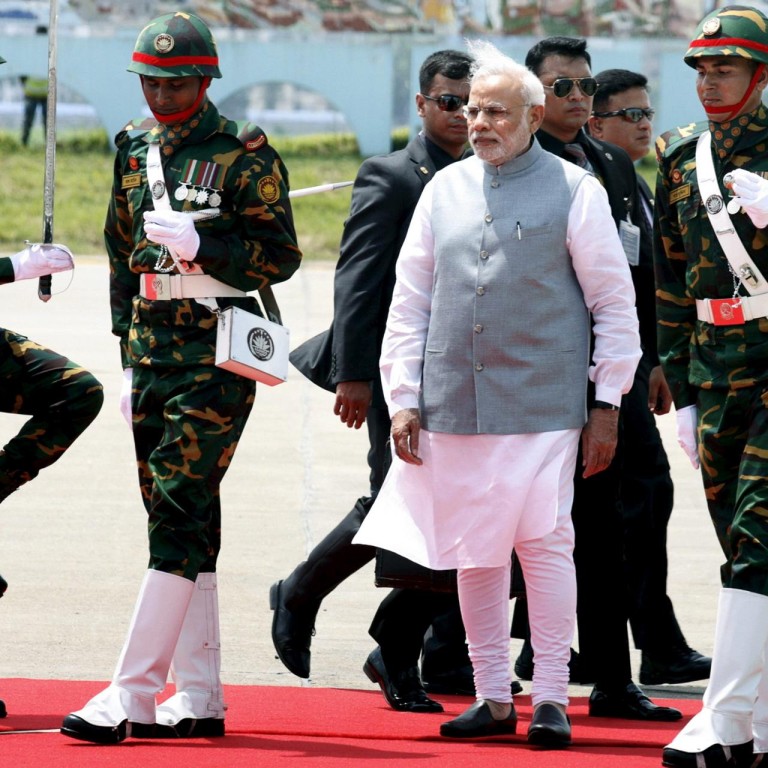
India, Bangladesh seal border deal
Land pact will end decades of statelessness for thousands in enclaves
Bangladesh and India yesterday sealed a historic land pact to swap territories, which will finally allow tens of thousands of people living in border enclaves to choose their nationality after decades of stateless limbo.
Foreign secretaries of the two nations signed a protocol and exchanged instruments of ratification to make operational the Land Boundary Agreement (LBA) in front of visiting Indian Prime Minister Narendra Modi and Bangladeshi premier Sheikh Hasina. The two premiers also inaugurated two bus services connecting the Bangladeshi capital with four eastern India cities.
While Delhi's relations with China and Pakistan continue to be dogged by border disputes, the Land Boundary Agreement's ratification will remove a thorn in ties ever since Bangladesh's 1971 war of secession from Pakistan.
India's intervention on behalf of the independence fighters proved decisive in that conflict and successive Bangladeshi governments have enjoyed close ties with their giant neighbour.
But an agreement on the ownership of 162 enclaves - essentially islands of land resulting from ownership arrangements made centuries ago by local princes - had proved elusive.
[It marks] a watershed moment in our ties with Bangladesh
Bangladesh endorsed the deal in 1974 but it was only last month that India's parliament gave its approval, teeing up yesterday's joint ratification ceremony between Modi and his counterpart Sheikh Hasina Wajed.
Under the agreement, the countries will exchange territories in India's northeastern states of Assam, Tripura, Meghalaya and eastern West Bengal.
People living in the enclaves will be allowed to choose to live in India or Bangladesh, with the option of being granted citizenship in the newly designated territories, and the enclaves would effectively cease to exist.
About 50,000 people are said to live in the landlocked islands and lack many basic services such as schools, clinics or utility services because they are effectively cut-off from their national governments.
Modi has compared the agreement to the dismantling of the Berlin Wall that marks "a watershed moment in our ties with Bangladesh".
Bangladesh was also effusive, with Foreign Minister A.H.Mahmood Ali forecasting it "would open a new chapter" in ties.
India's Foreign Secretary Subrahmanyam Jaishankar said the deal would help end smuggling of people, drugs and money.
Wary of China's growing interest in India's backyard, Modi has been keen to play a greater leadership role in South Asia since coming to power.
